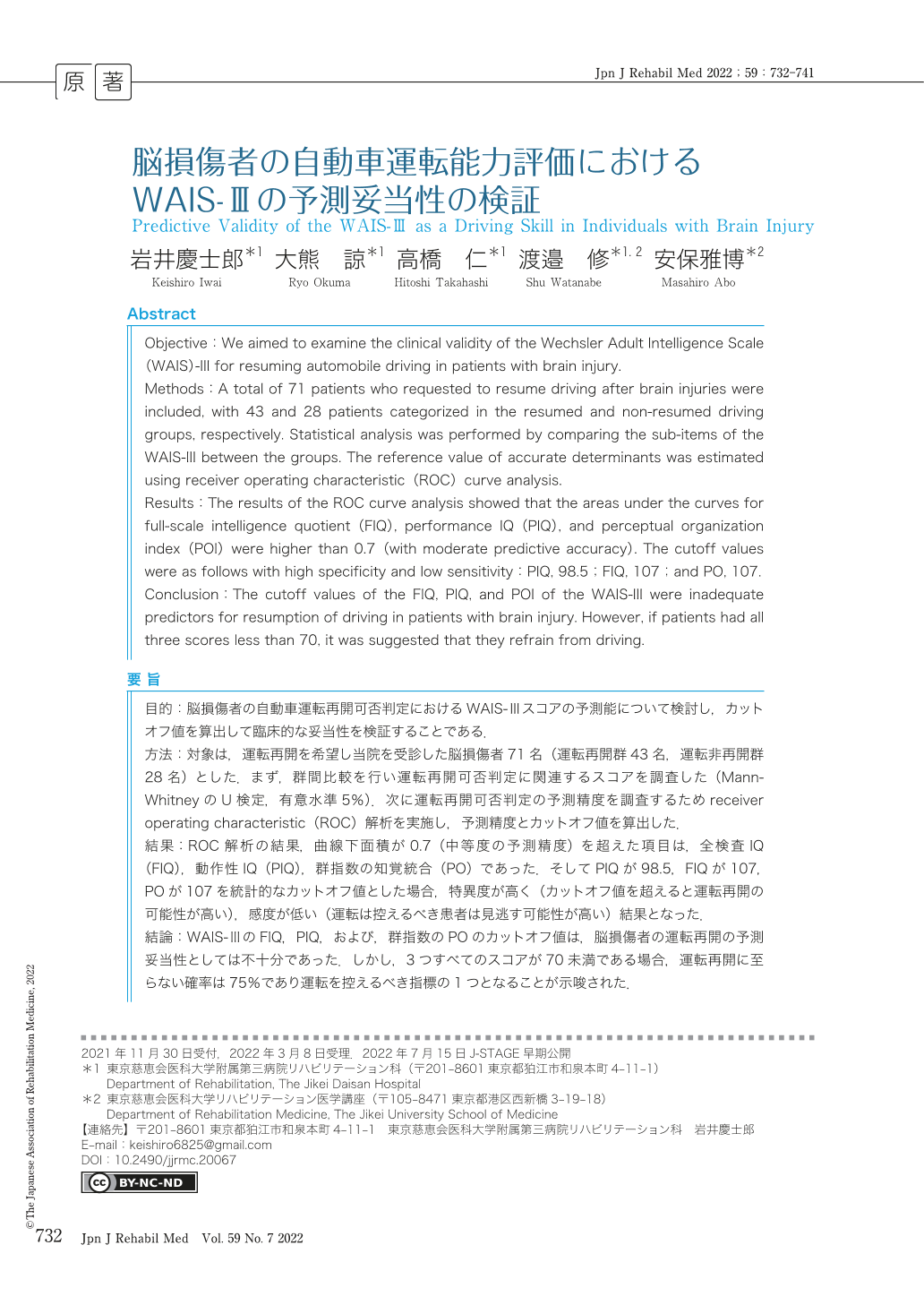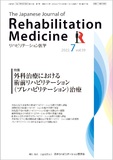Japanese
English
- 販売していません
- Abstract 文献概要
- 1ページ目 Look Inside
- 参考文献 Reference
- サイト内被引用 Cited by
要旨
目的:脳損傷者の自動車運転再開可否判定におけるWAIS-Ⅲスコアの予測能について検討し,カットオフ値を算出して臨床的な妥当性を検証することである.
方法:対象は,運転再開を希望し当院を受診した脳損傷者71名(運転再開群43名,運転非再開群28名)とした.まず,群間比較を行い運転再開可否判定に関連するスコアを調査した(Mann-WhitneyのU検定,有意水準5%).次に運転再開可否判定の予測精度を調査するためreceiver operating characteristic(ROC)解析を実施し,予測精度とカットオフ値を算出した.
結果:ROC解析の結果,曲線下面積が0.7(中等度の予測精度)を超えた項目は,全検査IQ(FIQ),動作性IQ(PIQ),群指数の知覚統合(PO)であった.そしてPIQが98.5,FIQが107,POが107を統計的なカットオフ値とした場合,特異度が高く(カットオフ値を超えると運転再開の可能性が高い),感度が低い(運転は控えるべき患者は見逃す可能性が高い)結果となった.
結論:WAIS-ⅢのFIQ,PIQ,および,群指数のPOのカットオフ値は,脳損傷者の運転再開の予測妥当性としては不十分であった.しかし,3つすべてのスコアが70未満である場合,運転再開に至らない確率は75%であり運転を控えるべき指標の1つとなることが示唆された.
Abstract
Objective:We aimed to examine the clinical validity of the Wechsler Adult Intelligence Scale (WAIS)-III for resuming automobile driving in patients with brain injury.
Methods:A total of 71 patients who requested to resume driving after brain injuries were included, with 43 and 28 patients categorized in the resumed and non-resumed driving groups, respectively. Statistical analysis was performed by comparing the sub-items of the WAIS-III between the groups. The reference value of accurate determinants was estimated using receiver operating characteristic (ROC) curve analysis.
Results:The results of the ROC curve analysis showed that the areas under the curves for full-scale intelligence quotient (FIQ), performance IQ (PIQ), and perceptual organization index (POI) were higher than 0.7 (with moderate predictive accuracy). The cutoff values were as follows with high specificity and low sensitivity:PIQ, 98.5;FIQ, 107;and PO, 107.
Conclusion:The cutoff values of the FIQ, PIQ, and POI of the WAIS-III were inadequate predictors for resumption of driving in patients with brain injury. However, if patients had all three scores less than 70, it was suggested that they refrain from driving.

Copyright © 2022, The Japanese Association of Rehabilitation Medicine. All rights reserved.


